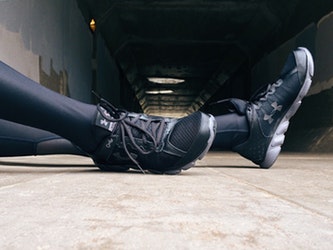Successfully completing a rehab program is no small feat. There is no doubt that you found it challenging, overwhelming, and exhausting. You might have even considered leaving the program; however, you did not go. You stuck with it, and that is an incredible victory on your part.
This is the first step on the path to living your best life possible. However, the ‘real-life’ work actually began the moment you finished your rehab program. Now it is time to apply what you have learned and start your new journey.
Overcoming the Obstacles
Adjusting to life after rehab will not be easy; before rehab, you leaned on the crutch of drugs or alcohol. Both your mind and body became used to functioning under the influence of a substance. There is no doubt at all that there will be times where circumstances make it almost impossible for you do not want to turn back to life before rehab.
The feeling of beginning life without using substances can be downright scary.
However, many factors can assist you in maintaining an addiction-free lifestyle. For starters, those that have completed treatment through the Recovery Centers of America can (and are encouraged to do so) participate in a 60-day outpatient program that can be tailored to an individual’s lifestyle. There are several different programs with a group and individual therapy that are explicitly designed to help reinforce the tools that have been learned in recovery.
Whether you have completed this program, or have attended another rehab facility, now is the time to adjust to life after rehab. Staying connected to your recovery center is also an excellent source of support.
Tools for Successful Recover

One of the most important and valuable tools to a successful recovery is having a social network in your corner. That certainly does not mean it has to be extensive; instead, perhaps it is a few close friends and family that you can count on who will help you stay clean.
It is also vitally critical to be completely disconnected from those that can cause peer pressure temptation. Anyone who does not support your recovery cannot be allowed in your life any longer. It just is not worth the risk of relapse after the incredible work you have already accomplished, and the commitment you have made to yourself for life after rehab.
Focus on Your Physical Health

Working on your physical health after leaving rehab will prove beneficial on many fronts. Improving your health and participating in regular workouts will begin a new and positive routine for you. It goes without saying that your physical health will no doubt recover as well, not to mention your emotional and mental well-being can dramatically improve. Another positive reason for working out is the opportunity to meet new people who also enjoy physical fitness activities. This can result in creating a unique and encouraging social network. If you feel you need more support to find a psychologist in your community.
Look for New Hobbies
The pressures of drug and alcohol abuse are real; there is no doubt about it. However, changing your hobbies, activities, and even the social events you attend can literally make a world of difference in your life. Finding new interests that stay completely clear of previous addiction lures will help tremendously. It is about shifting from the old and focusing on the new.
Pay Attention to Triggers

The battle is always present, but with the right tools to fight with, you can live an addiction-free life. Identifying your relapse triggers and finding outlets that do not involve your substance addiction is an absolute must.
Triggers can include such things as:
- stress from work, relationships, life difficulties
- specific places you used to frequent when you were using
- people who used alcohol/drugs with you and are still using
- feelings that are similar to when you were using (e.g., social settings, smells, and sounds)
It is a good idea to prepare in advance for situations that might arise, and have an action idea in mind. This will bring you a sense of control over your own life. You are in charge of the direction of your path, not the substances or peer pressure. An action plan is a vital tool that will empower you as you embark upon your new lifestyle.
Support groups can be incredibly helpful for your life after rehab. Attending meetings and speaking with other people who understand your situation, and what you are going through can provide excellent coping strategies. There are also plenty of online support communities to help as well. You never have to do this alone.
About The Author:
Richie started Hurricane Fitness in 2011. Starting out as a Boxer at the age of 11 and winning County, Provincial, National and International medals in Boxing, he began running fitness classes and personal training. Since then he has gone on to work alongside Olympic, World and European Champions and has trained many clients, both at home and abroad, with a wide range of goals and needs. You can find him on his website; hurricanefitnessireland.com, or on his Facebook or Instagram page.



![[Infographic] Navigating Life After Breast Cancer: Essential Coping Strategies Navigating Life After Breast Cancer](https://www.safeandhealthylife.com/wp-content/uploads/2024/03/Navigating-Life-After-Breast-Cancer-150x150.webp)
